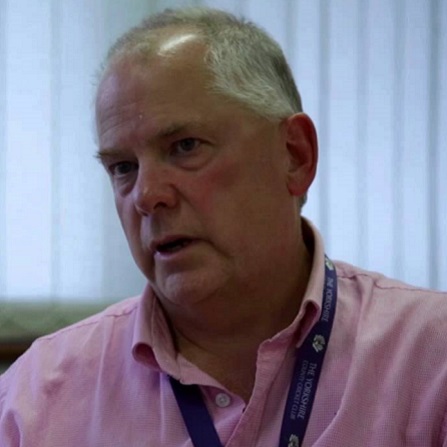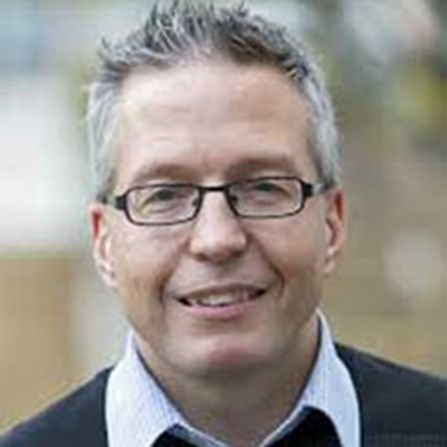14th International Biomedical Research into ME Colloquium 2025
BRMEC14 Colloquium
28 May - 30 May 2025
Investigating the Mechanisms of Myalgic Encephalomyelitis:
From Pathogenesis and Aetiology to Treatment Innovation –
Integrating Systems Biology and Clinical Research
Wellcome Genome Campus, UK
click on the topic bars below to expand/contract for more information
The 14th Biomedical Research into ME Colloquium (#BRMEC14) brings together leading international scientists and clinicians focused on Myalgic Encephalomyelitis (ME) (also referred to as ME/CFS) and related conditions such as Long Covid. Building on thirteen years of successful collaborative events, #BRMEC14 continues to advance the understanding of ME by fostering knowledge exchange and encouraging international collaboration.

ME, and more recently Long Covid, remain significant challenges for healthcare systems worldwide. Research efforts have often been hampered by limited funding, slowing progress in understanding and treatment. The BRMEC series plays a pivotal role in utilising existing research expertise, facilitating innovative ideas, and promoting the sharing of advanced biomedical and clinical insights.
The 2025 programme will incorporate the #IIMEC17 Clinicians’ Conference, allowing for greater flexibility and extending the event over three days. The programme will place a particular emphasis on systems biology, an approach that may provide valuable insights into the underlying mechanisms of these diseases and inform future research and therapeutic strategies. Recognising the symptom overlap between ME and Long Covid, the agenda will also include a focus on this emerging area of research. Presentations will explore the shared viral and immunological factors underpinning both conditions, with attention to their aetiology and pathophysiology.
The event offers a unique platform for researchers, clinicians, and early-career scientists to engage with the latest developments in ME research, fostering collaboration and driving innovation in this critical field.
The colloquium will commence at approximately 08:45 each day, starting on Wednesday, 28 May, and will conclude at approximately 18:00, with the exception of the final day, 30 May, which will end at 16:00. All times are GMT.
As part of the #BRMEC14 Colloquium, the #IIMEC17 Clinicians' Conference will be integrated into the programme on the third day, 30 May, allowing for greater flexibility and engagement.
On the evenings of 28 and 29 May, a dinner will be arranged to provide additional opportunities for networking and discussion for registered delegates.
The programme will cover a range of compelling topics, including:
- Systems Biology of ME
- Epidemiology of ME and Long Covid
- Host-Virus Interaction: ME and Long Covid
- CNS and Imaging
- Mitochondrial Dysfunction and Metabolomics
- ANS and Autoimmunity
- Microbiome
- Orthostatic Intolerance and Autonomic Physiology
- Therapies and Treatments
- AI and Bioinformatics
- Research Updates
- Multiple Chaired Discussions
In previous years, the history of ME has been examined as a framework for understanding Long Covid, and this theme will continue to be explored in this year’s discussions.
Full programme details are available at the link below.
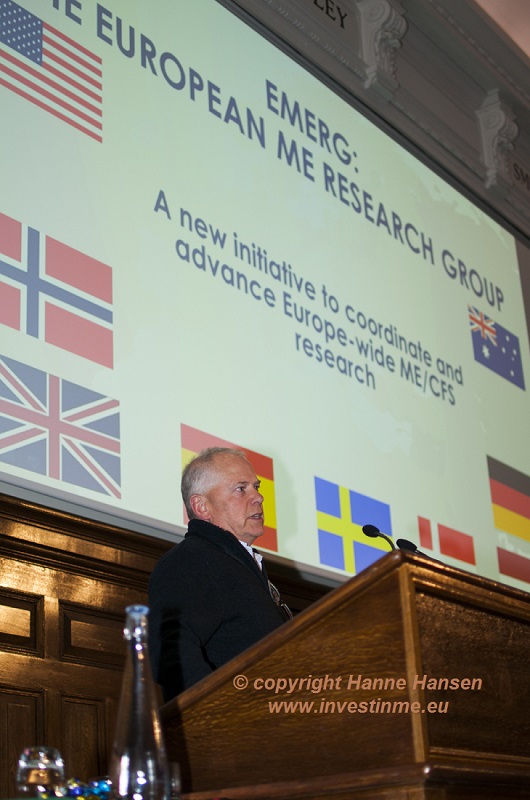
Research Leader, Quadram Institute Bioscience, Norwich Research Park, UK
Professor Simon Carding
UK
Upon completing postgraduate work at the Medical Research Council’s Clinical Research Centre in Harrow,
Professor Carding “emigrated” to the USA to take up a postdoctoral position at New York University School of Medicine,
and then at Yale University as a Howard Hughes Fellow in the Immunobiology Group at Yale University.
While
at Yale an interest in gamma-delta (γδ) T cells was acquired working closely with Adrian Hayday on molecular genetics and then
with Prof. Peter Doherty to establish their role in (viral) infectious disease.
He left Yale after five years to take up a faculty position at the University of Pennsylvania in Philadelphia where he
developed a research interest in mucosal and GI-tract immunology, performing studies in germfree mice with Prof John Cebra
that helped establish
the role of gut microbes in the aetiology of inflammatory bowel disease (IBD).
After 15 years in the USA, he returned to the UK to take up the Chair in Molecular Immunology at the University of Leeds
where he established a new research
programme on commensal gut bacteria and Bacteroides genetics leading to the development of a Bacteroides drug
delivery platform that is being used
for developing new interventions for IBD and for mucosal vaccination.
In 2008 he was recruited by UEA and IFR to develop a gut research programme, taking up the Chair of Mucosal Immunology
at UEA-MED and the position of head
of the Gut Biology Research Programme at IFR, which later became part of the Gut Health and Food Safety (GHFS) Programme.
GHFS research covers a broad area of gut biology including epithelial cell physiology, mucus and glycobiology, mucosal immunology,
commensal microbiology, foodborne bacterial pathogens, and mathematical modelling and bioinformatics.
The success of this programme has led to the establishment of the Gut Microbes and Health research programme
that is integral to the research agenda of The Quadram Institute.
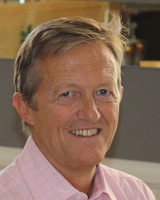
Research Director, Coordinating Research Centre, Bispebjerg and Frederiksberg Hospital, Denmark
Co-chair European ME Research Group
Dr Jesper Mehlsen
Denmark
Dr Jesper Mehlsen graduated as a medical doctor in 1979 and finished his specialist training in 1990.
He has published more than 140 scientific papers in peer reviewed journals, mainly on the autonomic nervous system and more recently
on complex diseases possibly resulting form HPV-vaccination.
For more than 35 years, he has worked clinically and in research with dysfunction of the autonomic nervous system.
Such dysfunction may lead to symptoms from a number of different organs often dominated by diminished control of blood pressure
and heart rate.
Over the past 5 years, he has worked clinically and in research with patients who suspect side effects due to HPV vaccination to
be the cause of a number of symptoms, common to those seen in chronic ME.
Dr Mehlsen is co-chair of the European ME Research Group (EMERG).
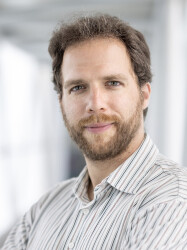
Tamas Korcsmaros
UK
Dr Tamas Korcsmaros is a systems biologist working with both computational and experimental approaches to study
signalling networks in the gut.
For 15 years, he has been been working in the field of intra- and inter-cellular signalling networks and the regulation of autophagy,
a key cellular process for maintaining health and fight diseases.
He is particularly interested in how cell-cell and cell-microbe interactions affect intestinal homeostasis,
and how one could use precision medicine to tackle current challenges to treat patients with inflammatory bowel disease.
In his group they have developed gap-filling computational resources and applied experimental novel systems,
such as organoids, to achieve these goals.
Besides leading his research group that focuses on improving our understanding on the pathomechanisms of IBD, he is also co-leading the
NIHR Imperial BRC Organoid Facility to establish patient-specific multi-omics studies for various complex diseases.
REFERENCES
References

David Price
UK
Professor David A Price MRCP DPhil DTM&H FAoP FLSW FRSB graduated with double first class honours
in medical sciences and pathology at the University of Cambridge and completed his clinical training at
King's College Hospital London.
He practised internal medicine, specialising in infectious and tropical diseases,
before pursuing a doctorate in molecular immunology at the University of Oxford.
After further academic clinical appointments,
his research was conducted with fellowship support at the NIH Vaccine Research Center.
He was appointed as Chair of Infection
and Immunity at Cardiff University School of Medicine in October 2007.
His research program focuses on the development and
implementation of advanced biotechnologies to characterise immune responses against globally relevant pathogens, such as
HIV-1 and SARS-CoV-2.
REFERENCES
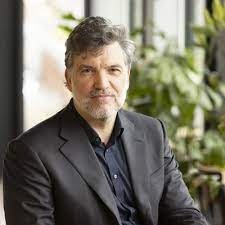
Associate Professor Jos Bosch
Netherlands
In 2012 he was appointed associate professor in the Department of Psychology, section Clinical Psychology.
His research investigates the psychobiology of medical disorders, with the aim to understand and mitigate the impact of disease.
His dual expertise in psychology and biology allows him to approach this topic in a genuinely interdisciplinary manner,
by integrating methods and concepts from both fields, and apply these to experimental laboratory studies,
clinical investigations, and epidemiological analyses. More recently hsi work has expanded to include Data Science and Artificial
Intelligence (AI) as a source of novel approaches to the analysis and modification of human biology and behaviour.
The latter program of research is funded by two H2020 consortium grants, of which he isa lead and a coordinator,
and involves intensive collaborations with groups accross continental Europe, the UK, and the US.
Since 2019 he became Associate Editor of Health Psychology Review, having previously acted as associate/senior editor for Brain, Behavior & Immunity (2011-2014), Psychological Bulletin (2010-2013), and Health Psychology (2010-2015).
In 2018 he was appointed Program Leader of the AMC/VUmc research institute ‘Amsterdam Public Health' (APH), Divsion of Mental Health (https://www.amsterdamumc.org/research/institutes/amsterdam-public-health.htm). In 2020 I was reappointed for 2 more years.
In 2023 Jos was awarded a grant of more than seven million euros to commence new biomedical research into ME/CFS.
Further reading:
Amsterdam UMC leads international consortium in the search for treatment for ME/CFS
Associate Professor Rikke Katrine Jentoft Olsen
Research Unit for Molecular Medicine, Department of Clinical Medicine, Aarhus University, Denmark
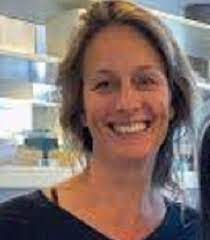
Our research group has a longstanding interest in inborn errors of mitochondrial metabolism with special focus on fatty acid oxidation disorders. We integrate genetic diagnostics of affected families with research into cell pathological mechanisms and novel treatment modalities in the form of mitochondrial vitamins/co-factors and anaplerotic compounds for the tricarboxylic acid cycle. In recent years, we have initiated research programs to understand the role that mitochondria may play in Myalgic Encephalomyelitis/Chronic Fatigue Syndrome (ME/CFS).
Besides science, Rikke KJ Olsen is an active member of the Neonatal Screening Program for inborn errors of metabolism in Denmark and board member of international scientific organisations within fatty acid oxidation disorders and ME/CFS.
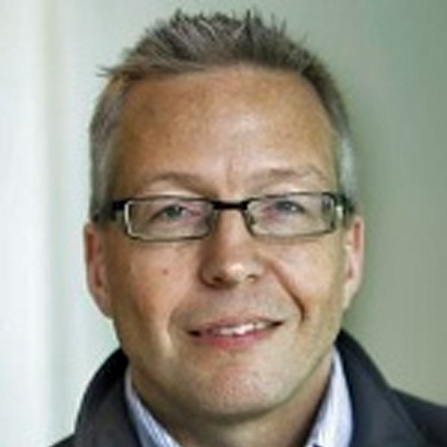
Full Chair Professor in Analytical Chemistry and Neurochemistry at the Department of Chemistry, Uppsala University, Sweden
Professor Jonas Bergquist
Sweden
Professor Begquist has a background as MD, Associate Professor of Clinical Neuroscience , Sahlgrenska University Hospital and the University of Gothenburg. Since 1999 , he has been a researcher in Uppsala, Sweden, and in 2005 was appointed professor of analytical chemistry and neurochemistry at the Department of Chemistry - BMC , Uppsala University. From 2011 he worked also as an adjunct professor of pathology at the University of Utah, Salt Lake City, Utah, USA.

Medical specialist in Immunology,
Head of Gastrointestinal Immunology research group
Department of Pathophysiology and Allergy,
Medical University of Vienna, Austria
Associate Professor Eva Untersmayr-Elsenhuber, MD, PhD
Austria
Dr. Eva Untersmayr-Elsenhuber Associate Professor of Pathophysiology and Allergy Research
at The University of Vienna.
Her research interests are
Immunology and Microbiology, Comparative Immunology and Oncology, Pathophysiology.
In 2011, Dr.in Eva Untersmayr-Elsenhuber completed her specialist training.
Since then, Dr.in Untersmayr-Elsenhuber has worked as a specialist
and associate professor at the ” Institute of Pathophysiology and Allergy Research at the Medical University of Vienna.
In 2012, Dr.in Eva Untersmayr-Elsenhuber completed her part-time doctoral studies in natural sciences at the University of Salzburg and received
her doctorate (Dr. rer. nat.).
She is the author of more than 40 internationally acclaimed articles published in renowned journals, which have so far been
cited more than 1000 times by other authors in publications.
For her work in the field of food allergy, Dr.in Untersmayr-Elsenhuber has received numerous prizes such as the Pirquet Prize,
the most important prize in the field of allergy research of the Austrian Society for Allergology and Immunology,
the Theodor Billroth Prize of the Medical Association of Vienna and the Vienna Chamber of Commerce Prize 2014.
In addition, Dr Eva Untersmayr-Elsenhuber has led and managed numerous competitively funded research projects on food allergy, gastrointestinal
immunology and oncology since 2005. She is a member of national and international committees such as the Austrian and European Societies for
Allergolgy and Immunology and the Collegium Internationale Allergologicum.
Dr. Untersmayr-Elsenhuber has participated in numerous science communication activities for years, such as the production of information brochures,
the Children’s University, the Long Night of Research and Science at the VHS Vienna.
(with grateful thanks to https://www.praxis-neustift.com/en/prof-ddr-eva-untersmayr-elsenhuber/)
Links:
Researchgate
Presenter to be confirmed
Details will be announced shortly.

Presenter to be announced
Details will be announced shortly.

Presenter to be announced
Details will be announced shortly.
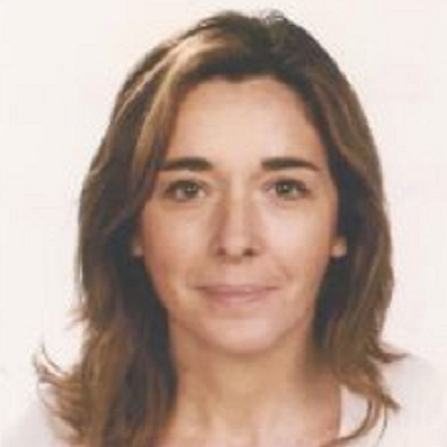
Universidad Católica de Valencia “San Vicente Mártir”, Spain
Elisa Oltra
Spain
Dr. Elisa Oltra is a professor of Cell and Molecular Biology at the Universidad Católica de Valencia “San Vicente Mártir” where she also
works as a researcher in the area of stem-cell and cancer.
She obtained an M.S. degree in Biochemistry at the Universitat de Valencia (Spain) and later earned her PhD in Biochemistry, Cell and Molecular Biology at the
University of Miami, FL (USA) where she stayed for her post-doctoral training and later, as Senior Scientist till 2006 when she moved
back to Spain. During her studies at the University of Miami she identified alternative 5´UTR sequences involved in regulating cell-cell
communication through mechanisms of differential connexin43 expression in the heart.
She also isolated a novel essential protein (Ini) and demonstrated its participation in mechanisms of transcription and splicing.
In 2009 she started a project to investigate the molecular basis of Fibromyalgia having identified at present irregularities
in RNAseL expression and miRNAs profile changes in the participating patients which could lead to a deeper understanding of the disease.
In 2012 she joined the IVP Valencian Institute of Pathology, also at the Universidad Católica de Valencia where she is currently studying a specific
type of vesicles: the exosomes, as mediators of stem-cell based therapies.
She is also academic director of the first officially accredited Master degree in Biobanking in Europe in collaboration with the Spanish Network
of Biobanking at the Instituto de Salud Carlos III, Madrid (Spain).
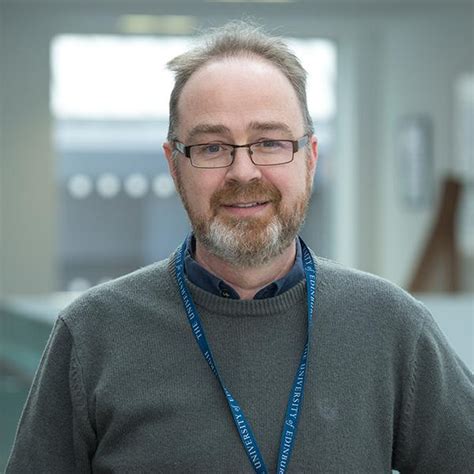
University of Edinburgh, UK
Chris Ponting
UK
Christopher Ponting is a British computational biologist, specialising in the evolution and function of genes and genomes.
He is currently Chair of Medical Bioinformatics at the University of Edinburgh and group leader in the MRC Human Genetics Unit.
He is also an Associate Faculty member of the Wellcome Trust Sanger Institute, a Fellow of the Academy of Medical Sciences,
member of the European Molecular Biology Organisation and Fellow of the Royal Society of Edinburgh.
His research focuses on long noncoding RNA function and evolution, on single cell biology and on disease genomics.
Professor Ponting contributed to the Human Genome Project, and participated in sequence comparison for the mouse, chicken, dog,
opossum, and platypus Genome Projects.
He has also used comparative genomics to contribute directly to the understanding of chromatin structure
and the genetics of numerous conditions including asthma,obesity, Alzheimer's disease, retinitis pigmentosa,
muscular dystrophies, and Aicardi–Goutières syndrome.
Additionally, his lab is part of DecodeME, a genetic study to determine the potential causes of myalgic encephalomyelitis.

............................
Exxxxxxxxxxxxxxxxx
xxxxxxxxxxxxxxx
,,,,,,,,,,,,,,,,,,,,,,,,,,,,,,,,,,,,,,,,,,,,,,
..................
BRMEC14/IIMEC17 Moderators
The annual Invest in ME Research International Biomedical Research Colloquium has been established as a closed symposium for researchers to share data and ideas in confidence in the quest to unravel the complexities of ME.

We are interested in progressing our goals of encouraging international collaboration in investigating this disease which will lead to discovery of aetiology and/or development of effective treatments.
For biomedical researchers who are interested in participating in the BRMEC* Colloquiums then please use our registration request form, or contact us for further information.
We also invite participation from outside the field of ME where it may assist existing researchers. We also extend our invitation to experts outside the ME field who may bring valuable insights to assist our dedicated researchers in this important journey
The conference will take place on the Wellcome Genome Campus at Hinxton Hall, near Cambridgeshire.
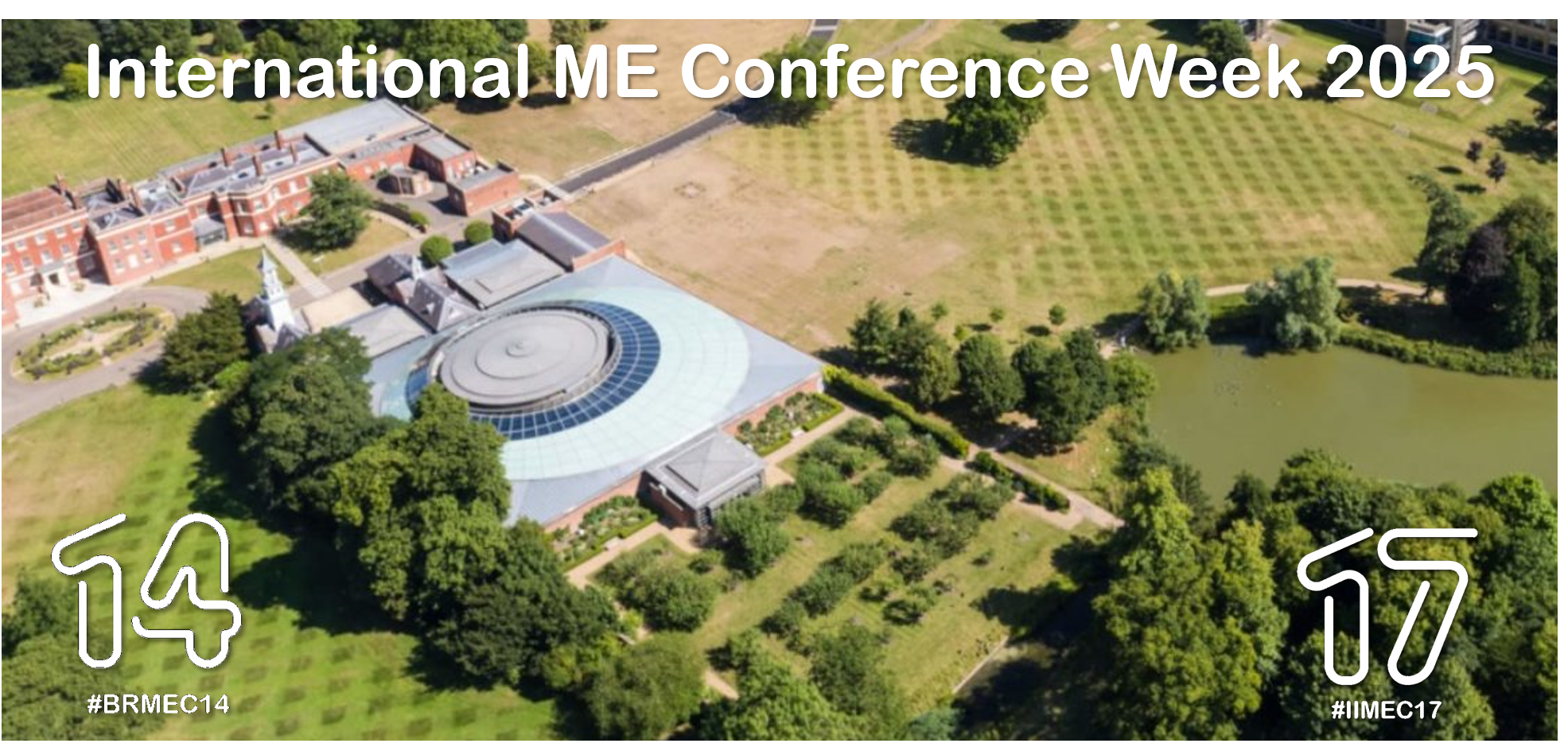
Hinxton Hall Conference Centre is located on the Wellcome Genome Campus, alongside research institutions that are at the forefront of the genomics revolution. Hinxton Hall Conference Centre blends stunning contemporary architecture with state-of-the-art facilities, alongside a Grade II* listed country house, all set within a beautiful, rural 100 acre estate bordering the River Cam.
This location is near to Cambridge as well as a short drive from London Stansted airport.
There is also a direct link to London Stansted from central London.
This venue offers a number of advantages for assisting in our objectives of building collaboration and expanding knowledge.
For researchers at accredited institutes who are interested in submitting an abstract of their research for consideration then please use the link below. Please bear in mind that any submissions must fit with the objectives and theme of the Colloquium (please read Overview). Subnissions will be reviewd by the colloquium committee.
The Colloquium will have the possibility to allow poster presentations.
Please contact us if interested in a poster presentation.
For biomedical researchers who are interested in participating in the BRMEC* Colloquiums then please use our registration request form, or contact us for further information.
There are opportunities for sponsoring elements of the International ME Conference Week 2025, including at the IIMEC17 conference.
Please read our Conference Week brochure for details of the events - available soon. Contact us if interested in becoming a sponsor of the conference and supporter of the work of Invest in ME Research
The Colloquium events have been arranged annually since 2011.
Past Colloquiums can be viewed via the link below

Research Leader, Quadram Institute Bioscience, Norwich Research Park, UK
Professor Simon Carding
UK
Upon completing postgraduate work at the Medical Research Council’s Clinical Research Centre in Harrow,
Professor Carding “emigrated” to the USA to take up a postdoctoral position at New York University School of Medicine,
and then at Yale University as a Howard Hughes Fellow in the Immunobiology Group at Yale University.
While
at Yale an interest in gamma-delta (γδ) T cells was acquired working closely with Adrian Hayday on molecular genetics and then
with Prof. Peter Doherty to establish their role in (viral) infectious disease.
He left Yale after five years to take up a faculty position at the University of Pennsylvania in Philadelphia where he
developed a research interest in mucosal and GI-tract immunology, performing studies in germfree mice with Prof John Cebra
that helped establish
the role of gut microbes in the aetiology of inflammatory bowel disease (IBD).
After 15 years in the USA, he returned to the UK to take up the Chair in Molecular Immunology at the University of Leeds
where he established a new research
programme on commensal gut bacteria and Bacteroides genetics leading to the development of a Bacteroides drug
delivery platform that is being used
for developing new interventions for IBD and for mucosal vaccination.
In 2008 he was recruited by UEA and IFR to develop a gut research programme, taking up the Chair of Mucosal Immunology
at UEA-MED and the position of head
of the Gut Biology Research Programme at IFR, which later became part of the Gut Health and Food Safety (GHFS) Programme.
GHFS research covers a broad area of gut biology including epithelial cell physiology, mucus and glycobiology, mucosal immunology,
commensal microbiology, foodborne bacterial pathogens, and mathematical modelling and bioinformatics.
The success of this programme has led to the establishment of the Gut Microbes and Health research programme
that is integral to the research agenda of The Quadram Institute.

Research Director, Coordinating Research Centre, Bispebjerg and Frederiksberg Hospital, Denmark
Co-chair European ME Research Group
Dr Jesper Mehlsen
Denmark
Dr Jesper Mehlsen graduated as a medical doctor in 1979 and finished his specialist training in 1990.
He has published more than 140 scientific papers in peer reviewed journals, mainly on the autonomic nervous system and more recently
on complex diseases possibly resulting form HPV-vaccination.
For more than 35 years, he has worked clinically and in research with dysfunction of the autonomic nervous system.
Such dysfunction may lead to symptoms from a number of different organs often dominated by diminished control of blood pressure
and heart rate.
Over the past 5 years, he has worked clinically and in research with patients who suspect side effects due to HPV vaccination to
be the cause of a number of symptoms, common to those seen in chronic ME.
Dr Mehlsen is co-chair of the European ME Research Group (EMERG).

Tamas Korcsmaros
UK
Dr Tamas Korcsmaros is a systems biologist working with both computational and experimental approaches to study
signalling networks in the gut.
For 15 years, he has been been working in the field of intra- and inter-cellular signalling networks and the regulation of autophagy,
a key cellular process for maintaining health and fight diseases.
He is particularly interested in how cell-cell and cell-microbe interactions affect intestinal homeostasis,
and how one could use precision medicine to tackle current challenges to treat patients with inflammatory bowel disease.
In his group they have developed gap-filling computational resources and applied experimental novel systems,
such as organoids, to achieve these goals.
Besides leading his research group that focuses on improving our understanding on the pathomechanisms of IBD, he is also co-leading the
NIHR Imperial BRC Organoid Facility to establish patient-specific multi-omics studies for various complex diseases.
REFERENCES
References

David Price
UK
Professor David A Price MRCP DPhil DTM&H FAoP FLSW FRSB graduated with double first class honours
in medical sciences and pathology at the University of Cambridge and completed his clinical training at
King's College Hospital London.
He practised internal medicine, specialising in infectious and tropical diseases,
before pursuing a doctorate in molecular immunology at the University of Oxford.
After further academic clinical appointments,
his research was conducted with fellowship support at the NIH Vaccine Research Center.
He was appointed as Chair of Infection
and Immunity at Cardiff University School of Medicine in October 2007.
His research program focuses on the development and
implementation of advanced biotechnologies to characterise immune responses against globally relevant pathogens, such as
HIV-1 and SARS-CoV-2.
REFERENCES

Associate Professor Jos Bosch
Netherlands
In 2012 he was appointed associate professor in the Department of Psychology, section Clinical Psychology.
His research investigates the psychobiology of medical disorders, with the aim to understand and mitigate the impact of disease.
His dual expertise in psychology and biology allows him to approach this topic in a genuinely interdisciplinary manner,
by integrating methods and concepts from both fields, and apply these to experimental laboratory studies,
clinical investigations, and epidemiological analyses. More recently hsi work has expanded to include Data Science and Artificial
Intelligence (AI) as a source of novel approaches to the analysis and modification of human biology and behaviour.
The latter program of research is funded by two H2020 consortium grants, of which he isa lead and a coordinator,
and involves intensive collaborations with groups accross continental Europe, the UK, and the US.
Since 2019 he became Associate Editor of Health Psychology Review, having previously acted as associate/senior editor for Brain, Behavior & Immunity (2011-2014), Psychological Bulletin (2010-2013), and Health Psychology (2010-2015).
In 2018 he was appointed Program Leader of the AMC/VUmc research institute ‘Amsterdam Public Health' (APH), Divsion of Mental Health (https://www.amsterdamumc.org/research/institutes/amsterdam-public-health.htm). In 2020 I was reappointed for 2 more years.
In 2023 Jos was awarded a grant of more than seven million euros to commence new biomedical research into ME/CFS.
Further reading:
Amsterdam UMC leads international consortium in the search for treatment for ME/CFS
Associate Professor Rikke Katrine Jentoft Olsen
Research Unit for Molecular Medicine, Department of Clinical Medicine, Aarhus University, Denmark

Our research group has a longstanding interest in inborn errors of mitochondrial metabolism with special focus on fatty acid oxidation disorders. We integrate genetic diagnostics of affected families with research into cell pathological mechanisms and novel treatment modalities in the form of mitochondrial vitamins/co-factors and anaplerotic compounds for the tricarboxylic acid cycle. In recent years, we have initiated research programs to understand the role that mitochondria may play in Myalgic Encephalomyelitis/Chronic Fatigue Syndrome (ME/CFS).
Besides science, Rikke KJ Olsen is an active member of the Neonatal Screening Program for inborn errors of metabolism in Denmark and board member of international scientific organisations within fatty acid oxidation disorders and ME/CFS.

Full Chair Professor in Analytical Chemistry and Neurochemistry at the Department of Chemistry, Uppsala University, Sweden
Professor Jonas Bergquist
Sweden
Professor Begquist has a background as MD, Associate Professor of Clinical Neuroscience , Sahlgrenska University Hospital and the University of Gothenburg. Since 1999 , he has been a researcher in Uppsala, Sweden, and in 2005 was appointed professor of analytical chemistry and neurochemistry at the Department of Chemistry - BMC , Uppsala University. From 2011 he worked also as an adjunct professor of pathology at the University of Utah, Salt Lake City, Utah, USA.

Medical specialist in Immunology,
Head of Gastrointestinal Immunology research group
Department of Pathophysiology and Allergy,
Medical University of Vienna, Austria
Associate Professor Eva Untersmayr-Elsenhuber, MD, PhD
Austria
Dr. Eva Untersmayr-Elsenhuber Associate Professor of Pathophysiology and Allergy Research
at The University of Vienna.
Her research interests are
Immunology and Microbiology, Comparative Immunology and Oncology, Pathophysiology.
In 2011, Dr.in Eva Untersmayr-Elsenhuber completed her specialist training.
Since then, Dr.in Untersmayr-Elsenhuber has worked as a specialist
and associate professor at the ” Institute of Pathophysiology and Allergy Research at the Medical University of Vienna.
In 2012, Dr.in Eva Untersmayr-Elsenhuber completed her part-time doctoral studies in natural sciences at the University of Salzburg and received
her doctorate (Dr. rer. nat.).
She is the author of more than 40 internationally acclaimed articles published in renowned journals, which have so far been
cited more than 1000 times by other authors in publications.
For her work in the field of food allergy, Dr.in Untersmayr-Elsenhuber has received numerous prizes such as the Pirquet Prize,
the most important prize in the field of allergy research of the Austrian Society for Allergology and Immunology,
the Theodor Billroth Prize of the Medical Association of Vienna and the Vienna Chamber of Commerce Prize 2014.
In addition, Dr Eva Untersmayr-Elsenhuber has led and managed numerous competitively funded research projects on food allergy, gastrointestinal
immunology and oncology since 2005. She is a member of national and international committees such as the Austrian and European Societies for
Allergolgy and Immunology and the Collegium Internationale Allergologicum.
Dr. Untersmayr-Elsenhuber has participated in numerous science communication activities for years, such as the production of information brochures,
the Children’s University, the Long Night of Research and Science at the VHS Vienna.
(with grateful thanks to https://www.praxis-neustift.com/en/prof-ddr-eva-untersmayr-elsenhuber/)
Links:
Researchgate
Presenter to be confirmed
Details will be announced shortly.

Presenter to be announced
Details will be announced shortly.

Presenter to be announced
Details will be announced shortly.

Universidad Católica de Valencia “San Vicente Mártir”, Spain
Elisa Oltra
Spain
Dr. Elisa Oltra is a professor of Cell and Molecular Biology at the Universidad Católica de Valencia “San Vicente Mártir” where she also
works as a researcher in the area of stem-cell and cancer.
She obtained an M.S. degree in Biochemistry at the Universitat de Valencia (Spain) and later earned her PhD in Biochemistry, Cell and Molecular Biology at the
University of Miami, FL (USA) where she stayed for her post-doctoral training and later, as Senior Scientist till 2006 when she moved
back to Spain. During her studies at the University of Miami she identified alternative 5´UTR sequences involved in regulating cell-cell
communication through mechanisms of differential connexin43 expression in the heart.
She also isolated a novel essential protein (Ini) and demonstrated its participation in mechanisms of transcription and splicing.
In 2009 she started a project to investigate the molecular basis of Fibromyalgia having identified at present irregularities
in RNAseL expression and miRNAs profile changes in the participating patients which could lead to a deeper understanding of the disease.
In 2012 she joined the IVP Valencian Institute of Pathology, also at the Universidad Católica de Valencia where she is currently studying a specific
type of vesicles: the exosomes, as mediators of stem-cell based therapies.
She is also academic director of the first officially accredited Master degree in Biobanking in Europe in collaboration with the Spanish Network
of Biobanking at the Instituto de Salud Carlos III, Madrid (Spain).

University of Edinburgh, UK
Chris Ponting
UK
Christopher Ponting is a British computational biologist, specialising in the evolution and function of genes and genomes.
He is currently Chair of Medical Bioinformatics at the University of Edinburgh and group leader in the MRC Human Genetics Unit.
He is also an Associate Faculty member of the Wellcome Trust Sanger Institute, a Fellow of the Academy of Medical Sciences,
member of the European Molecular Biology Organisation and Fellow of the Royal Society of Edinburgh.
His research focuses on long noncoding RNA function and evolution, on single cell biology and on disease genomics.
Professor Ponting contributed to the Human Genome Project, and participated in sequence comparison for the mouse, chicken, dog,
opossum, and platypus Genome Projects.
He has also used comparative genomics to contribute directly to the understanding of chromatin structure
and the genetics of numerous conditions including asthma,obesity, Alzheimer's disease, retinitis pigmentosa,
muscular dystrophies, and Aicardi–Goutières syndrome.
Additionally, his lab is part of DecodeME, a genetic study to determine the potential causes of myalgic encephalomyelitis.

............................
Exxxxxxxxxxxxxxxxx
xxxxxxxxxxxxxxx
,,,,,,,,,,,,,,,,,,,,,,,,,,,,,,,,,,,,,,,,,,,,,,
..................
Last Update January 2025


